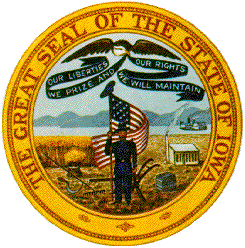For the third installment of my report on potential voter support for the Occupy movement, I first have to thank the good people at the Pew Research Center for this poll just released today online. Specifically, Pew conducted a survey of 1,009 adults in America between October 20th and the 23rd. The poll specifically asked about support for not just the Occupy Wall Street movement but also the Tea Party movement. The poll went a little further to specifically ask how much opposition there was with the public for both movements (instead of just asking how many support them and being left to assume the remaining percentage dislike them).
So what did those surveyed say about these two seemingly opposing movements? (1)
Also, 20% of those surveyed weren't sure how they felt about either movements.
But wait, there's more! The good people at Pew also broke down the support for each movement down by political affiliation.
For the OWS movement, their ideological support is as follows:
For the Tea Party Movement, the breakdown is:
So what does all this mean? Well firstly, the numbers for the Tea Party as a whole did surprise me. Now there has been a lot of talk lately about the Tea Party's support eroding since the 2010 mid-term elections, including a recent New York Times/CBS poll that showed that just 20% of Americans supported the Tea Party movement, with 40% opposing it. (2) Gallup released a poll conducted during August this year that showed 25% of adults polled supported the Tea Party movement, 28% opposing the movement, and 42% who claimed to be neither supporters or opponents of the movement. Further, according to Gallup's tracking of the Tea Party's support, their highest support in their polls was 32% in November 2010. (3) So as you can see, the support for the Tea Party movement is not exactly easy to pin down. Gallup and the NYT's polls show a decline in Tea Party support since last November while this Pew poll found the numbers of supporters to be quite similar to those high numbers from last fall. Gallup's option of being "neither" a supporter or an opponents is much higher than the other two polls and would seem to explain the gap between theirs and NYT's poll. Regardless, I believe the reason the Tea Party's support MAY have fallen since last fall is simply because their level of exposure has certainly gone down since last fall. I suspect their numbers will go up a bit the closer we get to the 2012 election but we'll have to wait and see..
What this does show is that polls are fickle things and depending on who conducts the poll the results can be rather unpredictable and uneven. The same is bound to be true of any polls involving the Occupy Wall Street.
However, the fact that the new Pew poll and the AP-GfK show similar support for the OWS does give their numbers some good strength in the accuracy department since it's rare for two polls conducted by two different organizations to have such similar numbers. The only major difference in the two polls is the breakdown of support for the OWS. In the AP-GfK poll, 60% of Democrats support the OWS compared to 52% in this new poll.
So what do I think of the numbers for the OWS to date? Personally, the amount of support in the polls today is fairly strong considering how young the movement is. In theory anyway, their numbers are high enough that if this was an election year the movement could have a major political impact. The key words there however are "in theory". The OWS is using much different tactics than the Tea Party did to cause change and as such it's hard for me personally to gauge how successful they will be.
Special thanks to the Pew Research Center for the release of this new poll, lets hope there will be more similar polls to come!
References:
1. http://www.people-press.org/2011/10/24/public-divided-over-occupy-wall-street-movement/?src=prc-twitter
2. http://www.nytimes.com/2011/08/05/us/politics/05poll.html?_r=1&ref=us
3. http://www.gallup.com/poll/148940/tea-party-sparks-antipathy-passion.aspx
Disclaimer:
The views expressed in this work are solely those of the author and not that of the Modern Whig Party or any other political organization.

